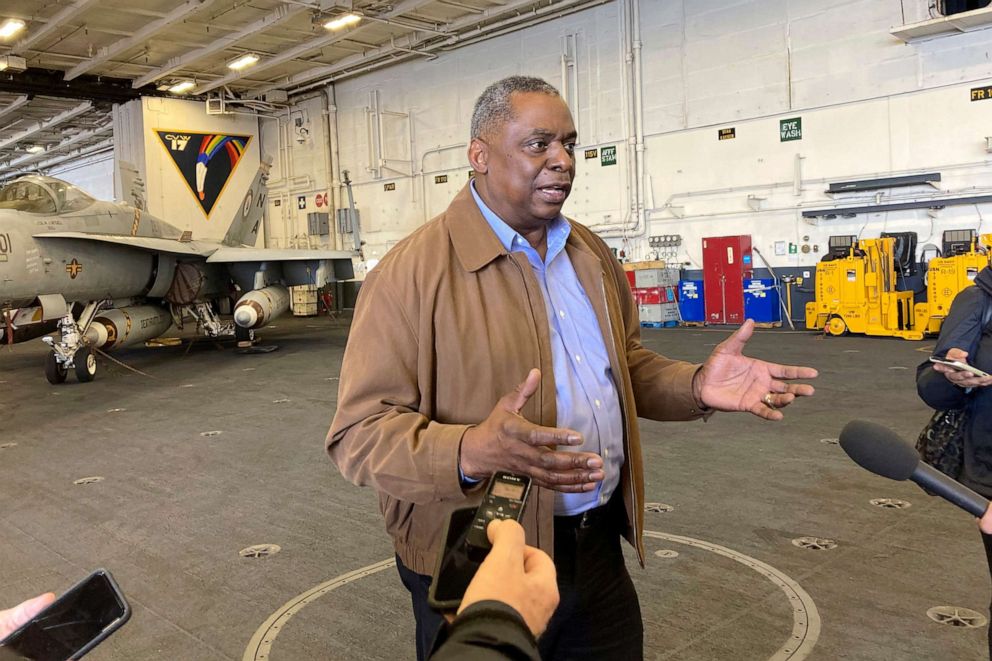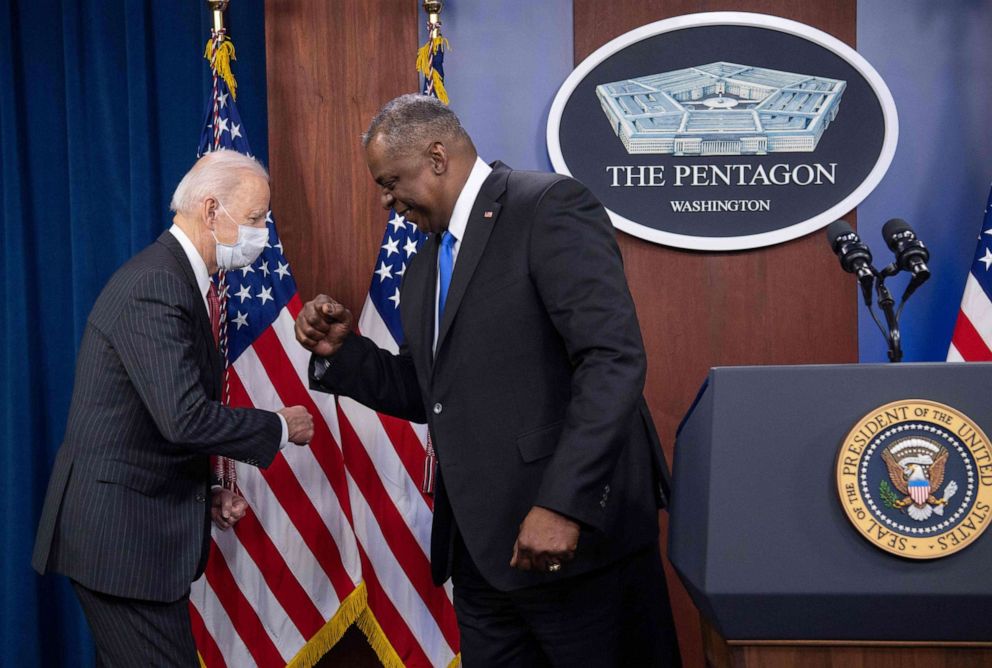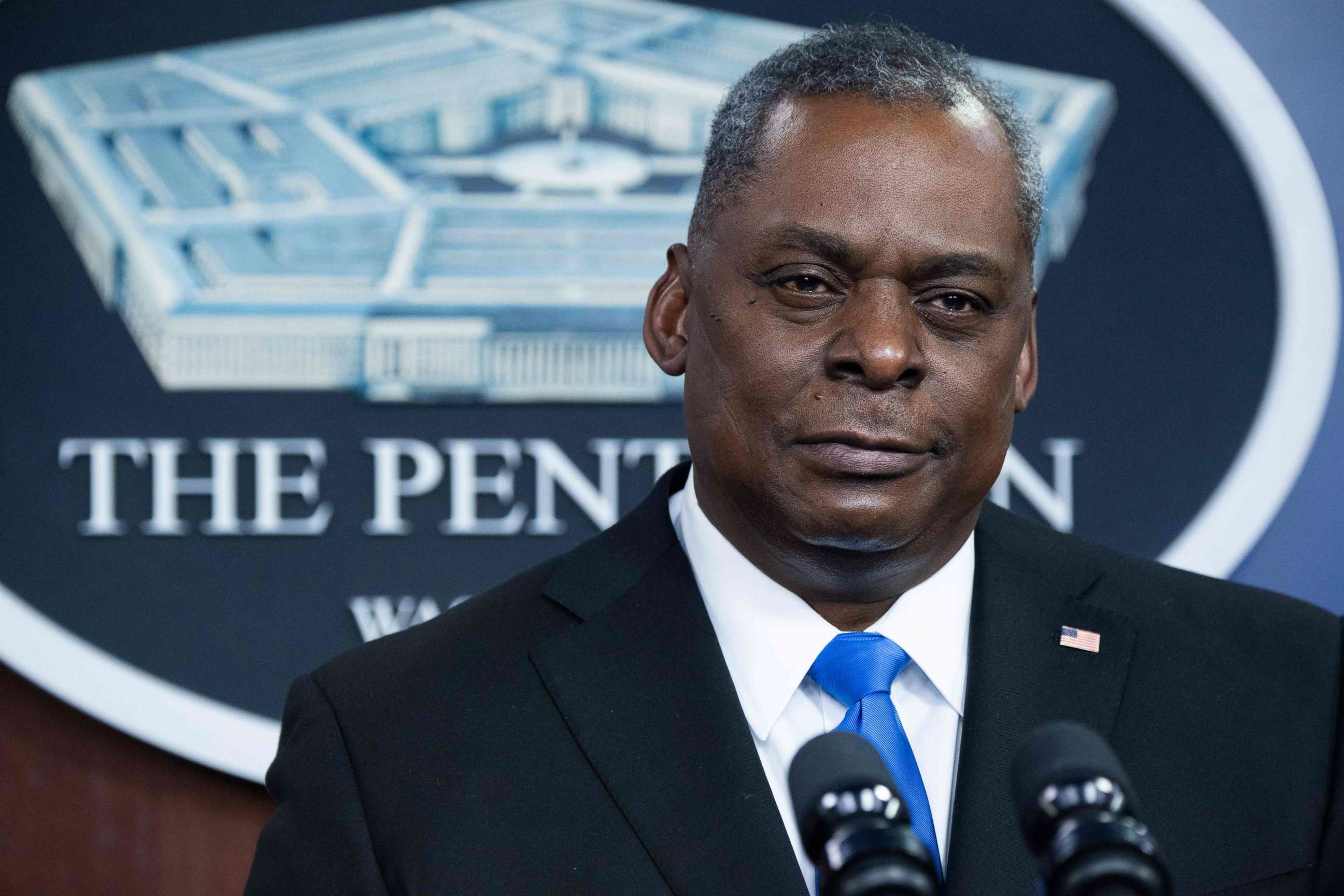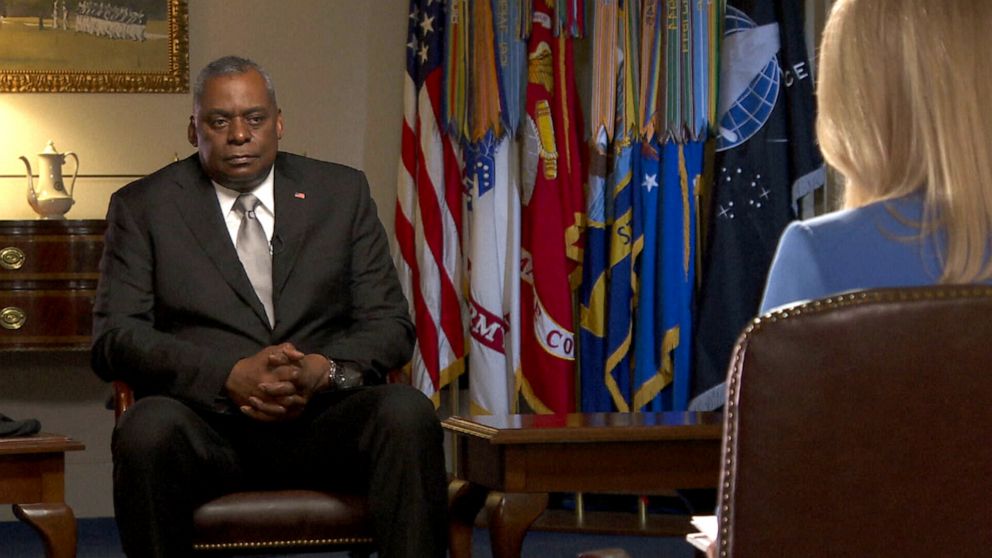Defense Secretary Lloyd Austin brings experience dealing with racism, extremism to Pentagon
Defense Secretary Lloyd Austin's extensive military career has not only prepared him for the roles diplomacy and deterrence play in American foreign policy, but for how to tackle head-on the issues of race and extremism in the military he said on ABC's "This Week" Sunday.
Overwhelmingly confirmed by the Senate as President Joe Biden's defense secretary, Austin overcame initial concerns raised by members of Congress about the nomination of another recently retired military leader in the job.
But Austin said his 41 years in uniform have helped him not only appreciate "the complexities of combat," but the importance of diplomacy as well.
"We want to lead with diplomacy in every case," Austin told "This Week" Co-anchor Martha Raddatz. "But if deterrence fails, then you must fight. You fight to win."
"You want to make sure that that your troops are properly resourced, properly trained and focused the right way so that they can not only win, but win decisively," he said.
The historical significance of being the first African American to serve as defense secretary is not lost on Austin, who said he still recalls seeing segregated bathrooms at a bus station while growing up in the Deep South.
"That's kind of how I started as a child and to rise -- to be able to rise -- to a position of secretary of defense in my lifetime is quite incredible," said Austin. "But you have to ask yourself, you know, why it took so long to get to have an African American secretary of defense."
Austin said he will seek to create opportunities for African Americans and Latinos serving in the military so they can rise to the highest ranks and ensure "that I am not the last African American secretary of defense."

Also key on his agenda is raising awareness within the military about the the issue of extremism in the ranks and stressing the constitutional ideals they are sworn to defend.
While he believes that "99.9% of our troops embrace those values and are focused on the right things and are doing the right things each and every day" a month ago he ordered American military units worldwide to take a day to discuss extremism.
Military leaders are already "having some really in-depth conversations with their troops on values, on the oath that we took, on the importance of unit cohesion," said Austin.
"This is not about, you know, political parties or political beliefs," said Austin. "This is behavior that can really tear at the fabric of our institution. And so we want to make sure that our troops are reminded of of what our values are, reminded of the oath that we took coming in.'"
On the world stage, Austin has already been called upon to provide Biden with his expertise in the Middle East as tensions have increased in Iraq with American forces coming under rocket attack from Shiite militias backed by Iran.
Last week, in the first military action of his presidency, Biden ordered a retaliatory airstrike on a facility in eastern Syria used by Iranian-backed Iraqi militias blamed for the rocket attacks on U.S. facilities.
But days later, 10 rockets were fired at the sprawling Ain al-Asad airbase in western Iraq that houses many of the 2,500 troops still in Iraq. No service members were injured in the attack, but an American civilian contractor died from a heart attack while sheltering from the incoming rockets.
Austin told Raddatz that the U.S. is still assessing who was behind the rocket attack against U.S. forces at Ain al-Asad airbase that took place days after the U.S. airstrike.

If the U.S. decides to retaliate again against the militias, Austin said that it would be "at a time and place of our own choosing."
"You can expect that we will always hold people accountable for their acts," said Austin. "We demand the right to protect our troops."
And Austin said that as the militia's main backers, Iran "is fully capable of assessing" and drawing its own conclusions about the intentions of the American airstrike.
"What they should draw from this again is that we're going to defend our troops," said Austin. "Our response will be thoughtful."
"We would hope that they would choose to do the right things," he added.
Part of Austin's job description is engaging with the senior leaders of America's military allies and partners.
In the case of Saudi Arabia, that presents an interesting situation as the Saudi defense minister is Crown Prince Mohammed bin Salman, who last week was implicated by U.S. intelligence as approving the murder of journalist Jamal Khashoggi.
"Our president has been clear that we'll have a different type of relationship with the Saudis going forward," said Austin. "It doesn't mean that it won't be a good relationship; I fully expect that it will be a good relationship, but it will be a bit different."

Austin noted that while he understands the importance of working with Saudi Arabia as a key strategic partner in the Middle East "it doesn't mean that you can't hold them accountable for various things."
"We're going to lead with our values, but we're going to protect our interests," he responded when asked why the crown prince was not among the Saudis sanctioned by the Biden administration for Khashoggi's death.
Austin has described the coronavirus pandemic as a national security threat and made it a priority for the U.S. military to help civilian authorities.

In addition to thousands of National Guardsmen and active duty troops assisting in COVID-19 response efforts, Austin has authorized the use of 6,235 active duty service members to help with vaccinations at Federal Emergency Management Agency mass vaccination centers.
"The military has a significant capability, capacity, and we can add speed and scale to anything that we endeavor to take part in," said Austin. "I've been out to visit our troops that are out there vaccinating."
"It's really remarkable to see not only how our troops feel about what they're doing, but also how the American public responds to the interaction with our troops," said Austin. "It's just amazing, just fantastic."



